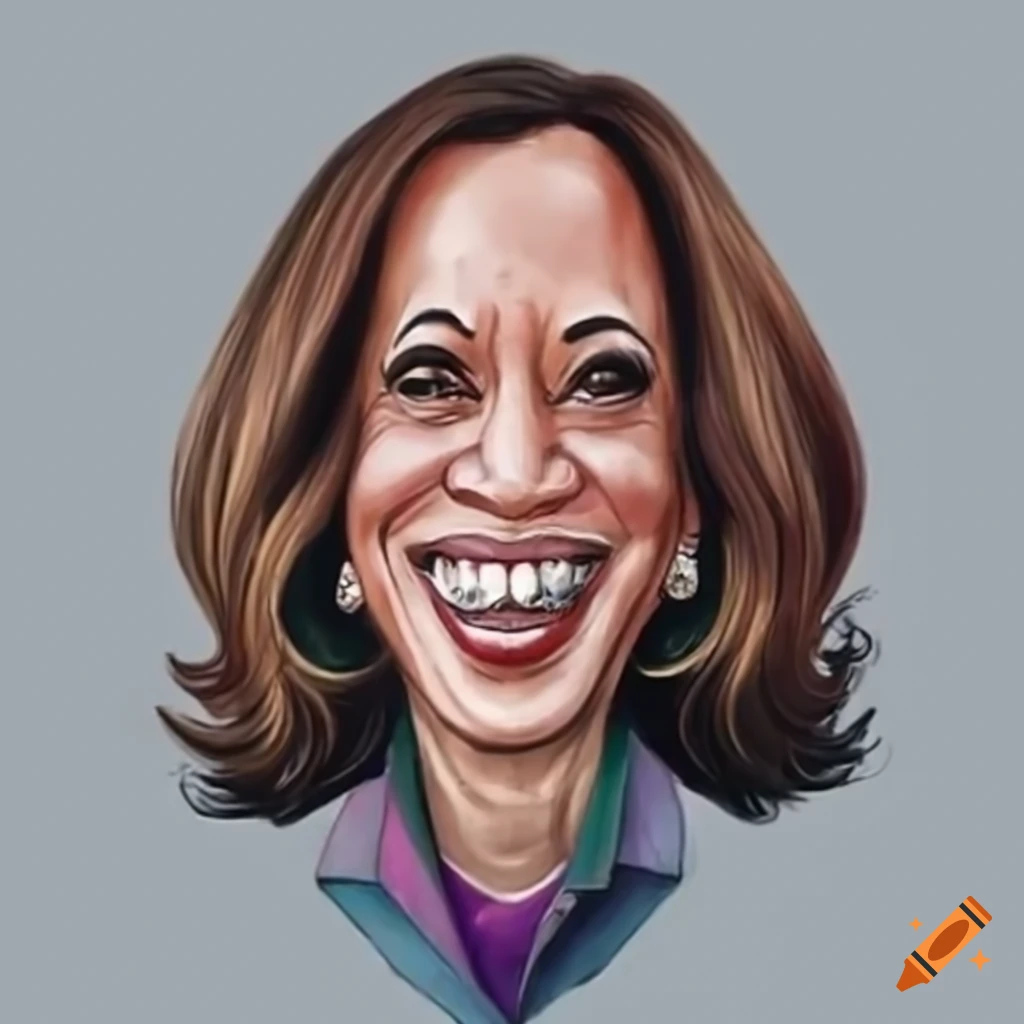Comical Kamala: Harris’s Future Marred by Her Discordant Laughter
From the bumbling blunders of Dan Quayle to the absurd mishaps of Dick Cheney, history has consistently framed U.S. vice presidents as the subjects of satire. Such biting humor is often rooted in the tertiary roles they play in the executive branch or the slip-ups they make in the public eye. Kamala Harris, the current vice president, seems to fall in line with this tradition. Her excessive and often discordant laughter has made her a prominent target of ridicule, casting an unflattering light on her already tenuous position.
The ill-fame of a vice president can often throw debilitating shadows on their future career aspirations; this is especially true for those who lose their bid for the presidential seat. Harris now finds herself in this precarious boat, adding another unexpected thorn to the thicket of contemporary politics. While President Joe Biden has labeled her as ‘competent’ to run for the role of president in 2028, his lukewarm endorsement might not be enough to bolster her prospects.
But should we allow history to play fortune teller? Perhaps, we should examine the track records of previous vice presidents who failed in their undertakings but later managed to secure successes. Richard Nixon’s defeat at the hands of Sen. John F. Kennedy in 1960 did not deter him from pursuing further political victories. Harris may take a leaf out of his book, but she would do well to avoid his bitter relationship with the press and potential political isolation.
In the aftermath of Nixon’s defeat, he tried to redirect his career and sought the position of governor for his home state, California. Unfortunately, this attempt ended in further disappointment, pushing him far away from the political limelight. During his hiatus from politics, he busied himself with a host of activities, including practicing corporate law in New York City and travelling extensively around the globe. This period of ‘exile’ later culminated in a successful presidential bid in 1968 — a victory marred by the darker shadows of Watergate.
Despite the Watergate scandal that tarnished his presidential tenure, Nixon made a determined attempt to rebuild his image post resignation. He authored numerous books, made frequent media appearances, and engaged in public speaking. His attempts at international diplomacy led him on multiple travels, giving him chances to meet with foreign dignitaries. However, it would be risky for Harris to follow Nixon’s path completely, given his winding road is marked with failures and scandals.
Vice President Hubert Humphrey, Nixon’s opponent in the 1968 race, allegedly carried the mantle of the ‘fallen vice-president’ back to the Senate after his defeat. While his subsequent guise as a statesman might provide a potential blueprint for Harris, it rings hollow against the stark backdrop of his untimely death.
Next in line of the defeated vice presidents, Walter Mondale waited patiently for four years after conceding the 1980 Ronald Reagan election. Despite his law practice providing him with a safety net, his ambition reinflamed, he dared to challenge President Reagan in 1984, only to meet another spectacular failure. Common consensus advises Harris to stay clear of Mondale’s path.
In spite of it all, hope remained Mondale’s faithful companion. He served in different administrative roles, chaired committees, and even indulged in policy discourse. He held a place of honor among Minnesota Democrats, being pegged as a last-minute replacement on the ballot in 2002, although he ultimately lost to Republican Norm Coleman. His life could serve as a beacon for Harris. Still, her plan should be meticulously thought through, considering Mondale’s path is filled with more losses than victories.
The prodigal son of presidential politics, Al Gore, bid adieu to his electoral journey after a challenging loss against George W. Bush in 2000. Instead, he decided to trail-blaze his post-political career with climate change advocacy. This alternative career path, however, would do little to flatter Harris, given the notoriety surrounding Gore’s ‘championing’ of this cause.
Harris’s onward journey remains fraught with choices and challenges. Her continued pursuit of the presidential dream hangs in jeopardy, considering whether it’s worth the stress of battling an already challenging nomination and general election process. Premiering as the governor of California, her home state, presents a new dilemma. The heated wildfire crisis has charred and scarred the state’s ruling party’s reputation, rendering this option a likely trap.
Has Harris considered penning a memoir? It could present an opportunity to share her ‘compelling’ life story, albeit running the risk of further public ridicule. A potential return to the Oval Office from a fellow Democrat could be Harris’s springboard for an ambassadorial role or a seat on the federal judicial bench. It’s equally plausible that Harris could reposition herself as an advocate for civil rights and women’s issues, assuming these passions can withstand public scrutiny.
While these are all valid possibilities, Harris also has the option of retiring from government service and cashing in on lucrative corporate board offers. That could be attractive, especially considering the diverse resume she holds. Yet, would that play into fueling the stereotype of power-hungry politicians quietly scurrying off to the shadows of capitalistic gains?
Irrespective of the route she chooses to traverse, it’s nigh inconceivable that Harris would disappear into oblivion, following the fate of other vice presidents who faded into non-existence post their comic follies. What remains to be seen is how she intends to reshape this narrative, keeping in mind history’s lessons and her predecessors’ falls from grace.
In all this, one can’t help but wonder if the vice presidents who found greater purpose beyond their political failures were the lucky ones or the cursed. Time will unveil whether Harris becomes another laughing stock, a feat she seems all too prone to do, or if she truly casts a new, albeit fraught, path for the vice presidency. Ultimately, the verdict rests in the court of public perception and her ability to shape it.

